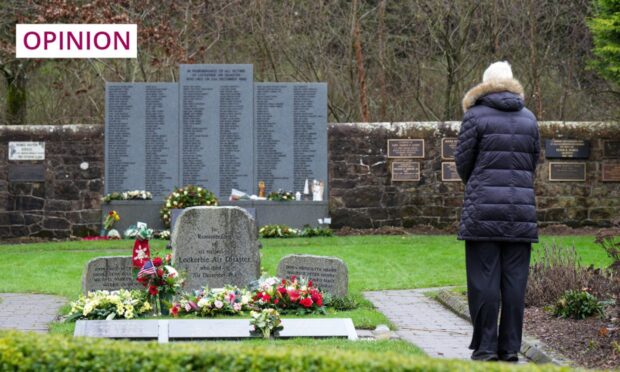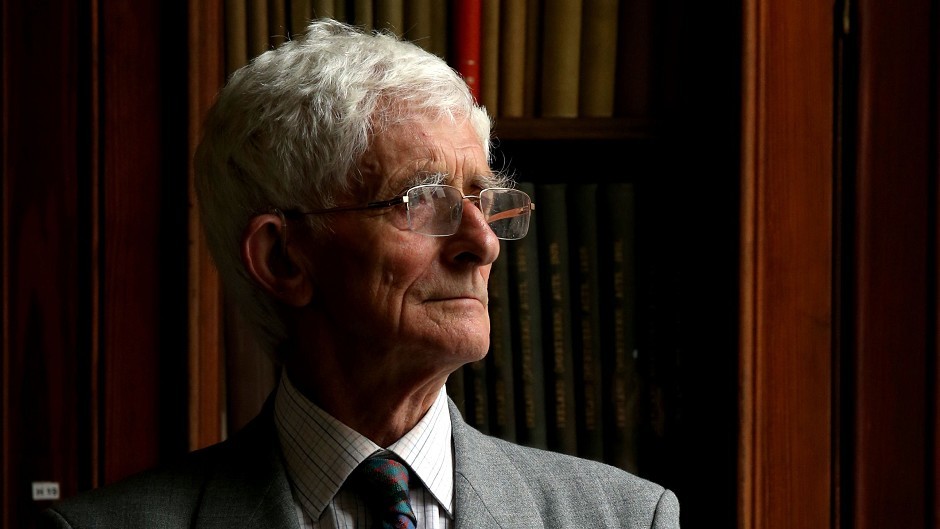Few of us will regret waving goodbye to 2023, a year which has brought continuing war in Ukraine and a new bloody conflict in Gaza, even before we cast our gaze over the political turmoil and cost-of-living crisis in Britain.
Yet, no matter how bad things get, for those of us of a particular generation of 20-somethings in the 1980s, there can surely never be another year as bad as 1988.
That’s when the horrors of Piper Alpha and Lockerbie become synonymous with tragic shortcuts in the North Sea and a terrorist atrocity over a small community in north-west Scotland, which caused the combined deaths of no less than 437 people: two disasters which are indelibly stamped in our memories.
Even now, it’s difficult to grasp that these catastrophes occurred within less than six months of each other. Or that, in both cases, hospitals rushed to provide an emergency response which was barely required.
That’s because almost nobody came back from the burnt-out Piper rig. And Lockerbie was about retrieval rather than rescue.
It was at just after 7pm on Wednesday December 21 when life changed irrevocably for the people of the village of Lockerbie and the passengers and crew of Pan Am Flight 103, whose fates collided with devastating consequences during the worst act of terrorism on British soil.
The following day, shock, trauma and a desperate desire for answers as to what had happened were evident in the residents, 11 of whom were among the 270 who perished. As one person said after surveying the wreckage in Sherwood Crescent: “Our friends were here one minute. Then they were gone.”
Ripples of suffering extended way beyond immediate impact
A decade later, I returned to Lockerbie and discovered that, although a veneer of normalcy had returned, allied to an impressive house rebuilding programme and the creation of new leisure facilities, the atrocity was still taking its toll. This is one thing which those unfamiliar with tragedy may struggle to fathom, but the ripples extended way beyond the immediate impact.
Kathleen Flannigan, 41, her husband, Thomas, 44, and their 10-year-old daughter, Joanne, were all killed instantly when an explosion ripped through their house at 16 Sherwood Crescent. Their bodies were never found.
Nobody can possibly envisage the emotions experienced by their 14-year-old son, Steven, who witnessed a fireball engulfing his home from a neighbour’s garage, where he had been repairing his sister’s bicycle.
Their other son, David, 19, was in Blackpool at the time and was forced to return to a scene straight from a Dore painting. He later turned to alcohol and drugs and succumbed to heart failure in 1993, aged 24.
Steven, despite a fresh start in England, couldn’t avoid being a prisoner of the past. He died in 2000, struck by a train in Wiltshire.
‘We can’t bring them back, but we can honour them’
In the circumstances, it is hardly surprising that Lockerbie remains inextricably linked with something terrible, as does Dunblane, Hungerford, Aberfan; other places thrust into the spotlight for the wrong reasons.
But what impressed many who travelled there was the determination of the community not to be frozen in time. As one resident told me: “We had to start again, but so many young people were killed [including 35 students from Syracuse University] that we recognised others were a lot worse off than us.
“We knew their families would want to come here and try to make sense of what had happened. So, we made up our minds to be there for them in whatever way we could.”
Those left behind have moved on with their lives. But they will never – and can never – forget. Kara Weipz from New Jersey lost her 20-year-old brother, Rick Monetti, one of the Syracuse students, whose dreams and ambitions were snatched away.
Now president of the Victims of Pan Am Flight 103 group, Kara is proud of the links which have been forged between the United States and Scotland. She said: “We can’t change things, we can’t bring them back, but we can look at the fact we have always honoured them with the way we live our lives and the things we do.”
If there is any positive aspect to Lockerbie’s suffering, it lies in that connection between hundreds of families who have established an immutable bond.
Neil Drysdale writes features for DC Thomson and is also an author



Conversation